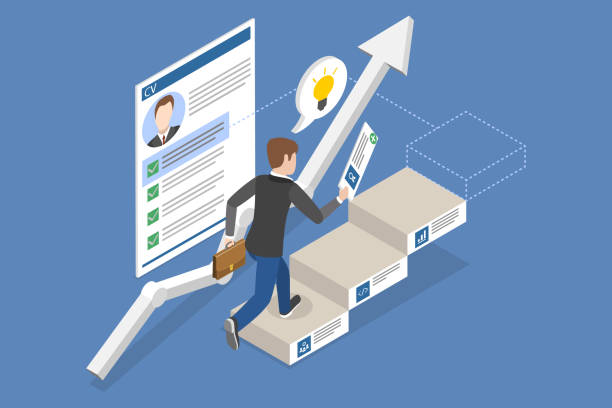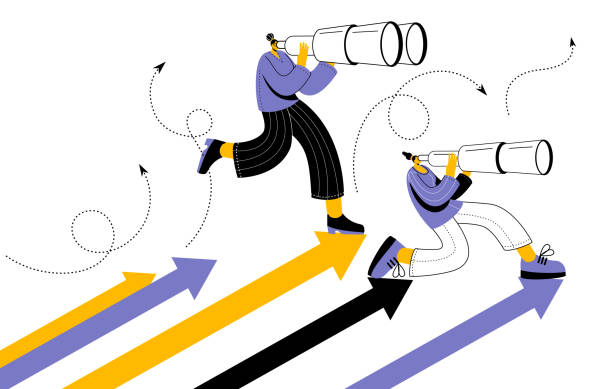”Chief Business Officer” One of the major roles in business development changes as leadership are very indispensible for Sector, and that is none other than Chief Business Officer (CBO). A traditional view of a CBO might be that they simply expect things to happen, ensuring day-to-day operations are in order. However, that success will be unable to persist if the role of a CBO is some kind of invulnerable-based leadership legacy. This article will examine the role of CBO how its transforming and what does it takes to be a next generation CBO.
The Traditional Role of the Chief Business Officer

Traditionally, the Chief Business Officer was in charge of a company’s business operations that were some of finance, human resources or overall strategy execution. The CBO collaborated with the other leaders in an effort to guarantee that all company goals were achieved, and further formalized report structure between departments so they would not lose sight of the vision for which tqb was striving.
An old school role which is appreciated, having a good knowledge about the business basics and management skills to run things smoothly. Yet as the business world has evolved, so have CBOs’ social contracts. They are not just in charge of the inward direction, they need to make sense of forward-thinking issues and complexities notwithstanding a quickly changing society.
The Changing Business Landscape
The business world is changing, and fast. Companies have transformed the way they work due to development in technology, globalization and a greater emphasis on customer centricity. This has implications for the CBO role.
Technology Influence: The Capacity Of A Good Technologie For Modern Business Organizations are more and more leaning on the power of data analytics, artificial intelligence, automation to plan their decisions as well as smoothens processes. This means that the modern CBO must be application ready, able to identify how technology can give them a leg up in business and most importantly, not simply tech-literate — but legitimately savvy about it. Into the process of digital transformation not only we have to embed but also let CBO oversee if these developments are right future fit and forward looking given more agile technologies which will be introduced as part the industry.
Globalization Impact: When taking their businesses global, CBOs have to be prepared to oversee operations in different regions and cultures. This involves having an understanding of how to penetrate international markets and altering business methodologies that cater different customers. On the other hand, it comes along with competition which is mean that power CBOs to provide novel and strategic in targeting their trade so as to be viable globally.
Customer-Centric Approach: The customer experience has never been more front of mind in businesses today. Social media and online reviews have today given the customer greater voice and power than ever before. Consequently, CBOs must be diligent about ensuring their firms are not only meeting but going above and beyond the bar on which customers rely. The latter would involve moving beyond merely managing the intrinsics of a business to actually interacting with customers, and applying that feedback into how you run your businesses.
New Skills Required for Modern CBOs

Given these changes in the business environment, the skills required of a CBO are also evolving.
Tech-Savvy Leadership: Technology is a critical element of contemporary business, just as it was in the days of my first PC. A future CBO must be tech-savvy, not just in terms of using technology but also when it comes to leading their organization on the path towards digital transformation. This includes so knowing what artificial intelligence, big data and blockchain can do, as well as how they can be used to enhance the business.
Data-Driven Decisions: Once upon a time, businesses used to rely on their hunch and experience. There have been stages along the way, but in a traditional sense data is what guides our lives — for better or worse. To be an effective CBO, you must analyze this data and use it to drive business strategies. That means looking beyond just the numbers and figuring out what they actually mean or how you can use them to develop your business.
Adaptability and Innovation: The pace of change in the business world today is faster, requiring that companies adopt more flexible development and deployment processes. To accomplish this, CBOs must be nimble and willing to pivot on strategies. They must also be creative, continually finding new processes to make the necessary system modifications quickly and efficiently for customer satisfaction. The best attitude here would be to Be open for change and Take more risks
The Evolving Role of the CBO
As the business environment changes, the role of the CBO is evolving in several key ways.
Strategic Vision: A modern CBO is also a big-picture thinker, who can rise above the day-to-day demands of numbers and details to stay tuned with larger corporate objectives too. It includes creating an articulate vision of where the company is headed and constructing objectives to reach there. The CBO will also need to be forward thinking as it heads off changes in market.conditions.
Collaboration and Communication: Today, the CBO must be a skilled communicator and collaborator. This is by collaborating with other higher-ups, heads of departments, and maybe even external parties to get everyone on the same page with company goals. Communication is key to team leading, conflict management, and making sure that everyone involved knows what the status of things are.
Focus on Sustainability: As environmental and social concerns become more prevalent, organizations are facing greater demand to be sustainable. This is where the CBO steps in, ensuring that a company does not just operate efficiently but also ethically — for everyone. That means the planning and execution of strategies to lower emissions across a company, enhance social equity, and lay out an infrastructure that can continue into the future.
Challenges Facing Future CBOs

While the role of the CBO is evolving, it is not without its challenges.
Keeping Up with Technology: CBOs need to keep themselves updated with the latest trends and innovations, as technology progresses faster. This is also a challenging task since we must always learn and adapt.
Balancing Multiple Roles: As a result of this scope, at times the CBO becomes liable to oversee everything from finance and budgeting through operations even down into strategy. Success is dependent on managing time effectively across these varied responsibilities, and in a rapidly evolving business landscape where few have mastered doing so.
Navigating Economic Uncertainty: The global economy always manages some surprises so CBOs need to be ready and have the right financial footings for shifts in economic winds, market challenges & more. Achieving all that needs financial acumen and a willingness to take tough calls in hard times.
Preparing for the Future
To succeed in the future, CBOs must focus on continuous learning, building strong networks, and embracing change.
Continuous Learning: The business world changes all the time, and CBOs need to be prepared for it. This entails keeping up with industry trends, attending workshops and furthering their education as professionals through certifications etc.
Building a Strong Network: Networking is a key to any successful business leader. The best CBOs are able to craft strong relationships with other executives, key industry people and mentors that can lend an ear in challenging times.
Embracing Change: Lastly, the next CBO Director must embrace reform. It need to be willing jump in, risk and experiment new things. Change-AgentsBy embracing change, CBOs lead their companies to success in an environment where doing business as usual is akin to waving goodbye.
Conclusion
To sum up, the industry landscape is shifting and so are the responsibilities of a Chief Business Officer against this canvas. Successful CBOs of the future will be those that are: tech-savvy, data-driven and agile as well as highly innovative. They also need to think strategically, communicate well and be dedicated to sustainability. While it is not an easy task, whatever learning experience that comes with the role, anyone who will prepare to learn how business development works on ground networks and can adapt himself in such a way e.g. For his clients or customers
FAQs: The Future of Leadership: Evolving the Chief Business Officer Role for Success
1. What is a Chief Business Officer (CBO)?
The Chief Business Officer (CBO) is a top-level executive responsible for the overall business operations of an organization. That kind of power management (financial, people and strategy execution) to achieve the goals that were set within such enterprise.
2. How has the role of the CBO traditionally been defined?
If you will, the CBO of yesteryear was kind of like running QA before something went out the door. Duties included budget compliance, personnel management and interfacing with other execs to keep the company’s activities in alignment with its mission.
3. What changes in the business landscape are influencing the CBO role?
One primary factor around the evolution of CBO is certainly technology-driven, through advancements in what can be digitized and virtualized for enabling hyper-local teams to operate remotely. This means CBOs need to morph and broaden their skill set in order keep pace.
4. Why is technology important for modern CBOs?
Modern businesses need technology that powers decision-making and operational efficiency. All this means that Chief Business Officers such as Rauth need a bit of tech in their bases to drive digital transformation, roll out new technologies and keep competitive.
5. How does globalization affect the CBO role?
With globalization, enterprises are working in different markets and therefore CBOs need to respect these cultural differences as well business practice. It in addition raises competition hence CBOs have also to think strategically andinnovatively.



3 Comments